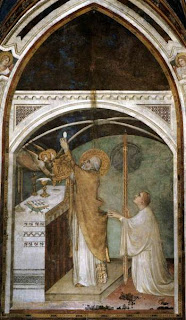Since both Funky Dung and Jerry have recently entered the world of parenthood, I thought it fitting that my first guest post for this blog should discuss parenthood – specifically, attitudes toward parenthood in different religious groups.
Tag Archives: Catholic
Bishop to Celebrate Mass for the Catholic Medical Association
For all those Pittsburghers in medicine, nursing, dentistry and other healthcare fields (which is probably a good chunk of the population), please mark this on your calendars:
Mass @ 9:00 a.m., Holy Family Chapel,
UPMC-Mercy Hospital
Bishop David A. Zubik, D.D. – Main Celebrant
Breakfast Program to follow in Sr. Ferdinand M. Clark Auditorium
Speaker: John F. Brehany, Ph.D., S.T.L.
Executive Director and Ethicist, National CMA
This is run by the Pittsburgh Guild of the Catholic Medical Association. Write to info@cathmedpittsburgh.org for more information.
In Search of Catholic “To Kill a Mockingbird”
I met my wife three years ago in northern Quebec, and at the time she could barely speak English and I could barely speak French. Now that we are both proficient in each other’s language, one of the great joys of our married life has been to introduce each other to the literature of our respective languages. I will never forget the day she finished “To Kill a Mockingbird.” She fell in love that day with the English language and has explored dozens of authors since, from C.S. Lewis to J.D. Salinger to Margaret Atwood.
Now my wife is thinking of becoming Roman Catholic (she was one of the few Evangelical Baptists in Quebec when I met her). She has asked me for books to read that will give her sense of what the RC religion is all about. This has got me asking myself: what is the “To Kill a Mockingbird” of modern Catholic literature–by which I mean the most gripping, readable book that should be every newcomer’s first introduction to the RC faith? She is presently reading Ste-Therese of Lisieux’s “Story of a Soul,” which, though excellent, is not exactly Catholic 101. She is already a well-read Christian, and has basically exhausted C.S. Lewis.
Any suggestions?
Liturgy Is For God
Of Atheists and Crackers
Need a demonstration of the fallen nature of man? You’re looking at him. Syndicating Peter’s post linking to P.Z. Myers’ screed about the Eucharist being just a cracker royally offended good friend, frequent commenter, and occasional blogger, Stuff. As a form of public penance, here are links to some Catholic discussion of Myers’ and his rabid rants.:
